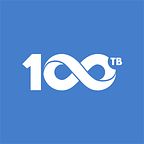The Benefits Of Cloud Media Streaming At Your Fingertips
Plex. Streambox. Azure. If you haven’t heard of these brands before, you’ve missed one of the modern age’s fastest-growing phenomena — cloud media streaming. The age of domestic servers and air-conditioned IT rooms has been usurped by a quiet revolution of remotely-hosted content, which can be distributed to any device that has the appropriate display software and login credentials. So what does this mean for you?
Faster Download Speeds Make Room For Cloud Streaming
Cloud media streaming has reached critical mass thanks to the ever-improving speed of internet connections. Web analytics firm Speedtest reported a 42% spike in the average American broadband customers’ download speeds in August this year, compared to 2015. Average download speeds have now passed the psychologically significant 50Mbps threshold. Insatiable demand for ever-faster connections should continue this welcome advancement in future.
With connection speeds no longer an impediment to high-speed data transfer, it makes perfect sense to let a third party handle your cloud media streaming. After all, setting up a server requires a fair degree of IT savvy and up-front investment in hardware. Far better to have data piped straight to a broadband router where it can be distributed by Ethernet cables or across the standard Wi-Fi network to recipient devices. Modern service providers offer most of the functionality you’d get from a traditional server, such as DLNA certification and automatic file synchronization.
Why Use The Cloud?
Another advantage of using a cloud media streaming service is that compatibility issues and encoding are handled on your behalf. Microsoft Azure Services provides a multi-platform player for displaying studio-grade encoding, which is dynamically encrypted with 128-bit AES or the customer’s choice of DRMs.
Similarly, Streambox Cloud handles everything from encoding and decoding to live production and playout of web video channels. There are no server upgrades or virtual machines to worry about, which can free up resources — assuming you actually have this level of technical knowhow in the first place…
While a conventional hardwired server may struggle to pipe data any further than the home, cloud media streaming makes digital data available from anywhere in the world. That’s of particular benefit to corporate audiences, who may want to offer new customers access to training videos or allow overseas staff to view conferences via live streams. Nor is the recipient’s delivery platform much of an issue, since most services are compatible with PCs and Macs as well as iPhone or Android devices.
Scalability To The Cloud And Back
The scalability of cloud-hosted solutions represents another significant advantage, eliminating the startup costs associated with real-world servers. This ensures that customers only pay for the services they’re using at any given time. As audiences increase, greater bandwidth can be allocated to provide multiple streams simultaneously and provide buffer-free viewing on a host of output devices.
100TB’s own systems are highly scalable, with 26 global data centers pumping out high-quality content via multiple 100Gbps links. Our streaming services grow organically in response to the popularity (and volume) of content offered by our clients.
In years to come, cloud media streaming is likely to become ubiquitous. Future generations will probably wonder why so many people once relied on complex, limited and expensive physical servers. The world is poised at the start of another technological revolution, with the cloud providing an easier way to access streaming media content anywhere, and anytime.
For more posts like the one you just read — subscribe to our newsletter at 100TB.com.
Originally published at blog.100tb.com.
